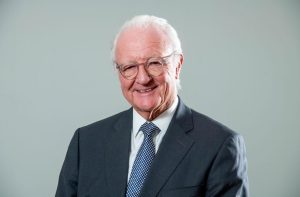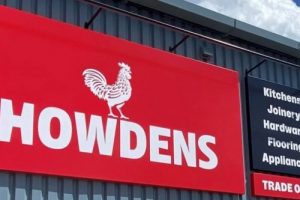How is 2014 shaping up for the manufacturing industry?

MANUFACTURERS in Yorkshire have seen strong conditions, increasing confidence and growth in the sector, according to reports this year.
So what does 2014 look like for Yorkshire’s manufacturers?
R&R Ice Cream – Europe’s largest own label ice cream manufacturer – said it is investing £5m at its Leeming Bar site.
R&R’s chief executive officer, Ibrahim Najafi, said: “We are looking forward with confidence to 2014 when we expect to start seeing the benefits of our investment at Leeming Bar. We are also upgrading our production facilities on mainland Europe including more new CHP plants and robotic product handling equipment.
“As always, there will be a strong focus on both branded and own label product innovation. In particular, we have exciting plans for our Mondelez brands in mainland Europe and Cadbury in the UK following our £49m acquisition of Fredericks Dairies in April 2013.”
However, Mr Najafi warned that – along with other companies in the food sector – R&R would have to continue dealing with volatile raw material prices.
“As a business we use some 20,000 tonnes of milk products a year so price fluctuations obviously have an impact. Other ingredients, too, are subject to sudden price hikes – such as cocoa butter where we have seen a 50% increase over the past 12 months,” he said.
Chris Ives, managing director of Ilkley Brewery, said the brewery has exceeded its forecasts for 2013 and expects the trend of revenue up by 20% plus to continue into 2014.
He added that export is stepping up to be one of its biggest areas for growth in 2014 and said the firm expects to see it develop steadily over the next 24 months to account for around 25% of sales by the end of 2015.
However, he said UK sales will still remain its biggest focus.
“We will continue to build on this by introducing new beers to the market next year, expanding our customer base and supplying greater volume of bottled beers to national retailers,” he said.
“As the business grows we will need to increase staff levels by 20% to meet the forecast increase in production.
“The micro-brewery industry is healthy but challenging and we operate in an increasingly busy market place (over 100 new breweries opened in the last 12 months). It will be a challenge to maintain growth at the same levels unless we can continue to differentiate ourselves through both the quality of the beers we brew and how we market our beers and the brewery.”
The latest Manufacturing Advisory Service’s (MAS) Barometer revealed that small to medium sized manufacturers in Yorkshire and Humber were the most optimistic of all their counterparts across England. Nearly four out of five respondents said they were expecting to grow their businesses between now and April 2014.
Area director for Yorkshire and Humber, David Caddle, said: “We have a plethora of outstanding, world-class suppliers who have come through some extremely difficult times, but have learned and absorbed the tough lessons to make their companies better. Our team of ten local advisors – who are working on the shop floor with these manufacturers – are reporting increased investment in new technologies, a desire to bring new products to market and an eagerness to look at new markets. The key here is the word ‘new’ – our SMEs feel that the time is right to really target expansion and take all the things they do really well and apply them into previously untapped markets.”
Caddle said that the reputation of English manufacturing currently seems to be extremely fashionable with global investors and decision makers.
He added: “I think next year we will start to see the preparatory work undertaken in leading the low carbon agenda really come to fruition. Electric vehicles are getting better and more consumer friendly, whilst the burning issue of renewables is ushering in the next generation of power supply. Nuclear is receiving major investment and offshore wind, especially on the East Coast, could hold lots of opportunities for our firms to capitalise on.”
Mike Hughes, chief executive officer of Leeds-based barrier system manufacturer Hesco Bastion, said the signs are that 2014 should be a better year than 2013 since the general market seems to have improved.
“Our target for 2014 is to build upon our reputation as the market leader in our niche sector and continue to expand into new export markets to fuel growth and maintain our manufacturing capabilities here in Leeds,” he said.
“Hesco Bastion operates in a niche area which continues to be event driven but is continuing its expansion in the oil and gas market in the Middle East and North Africa whilst continuing to support the UN in its various missions. Generally enquiry levels are higher than as at the same time as last year.
“Since the majority of our sales are to the export market our focus continues to be on overseas markets and we are actively seeking to strengthen of our presence in Asia where we have not historically had significant sales. For example this year we had significant new contract wins in Thailand for flood protection and have been working with several international oil companies to provide security to key infrastructure projects whilst also expanding our work with leading international humanitarian and peacekeeping organisations.
“In 2014 we are also planning investment in areas which will help us diversify the business with a focus on Research & Development which also includes the expansion of the current product range.”
However, MAS’s Caddle said it’s not all bright lights and growth.
“A number of challenges for our sector exist and we have to make sure we address them as soon as possible,” he said.
“Skills shortages and an ageing workforce are high on the list of priorities for management teams and more needs to be done by all parties to encourage and train the engineers of the future. Finance, whilst flowing slightly more freely than this time next year, is not really catching up with industry demand and there could come a time when potential growth is curtailed by a reluctance to lend to industry.
“It’s not just the banking system where the issues lie. Our manufacturers need to appreciate it is a two-way street and they need to ensure they build a compelling business case for securing the funds.”
Peter Birtles, director at Sheffield Forgemasters, said for this business, the large majority of our sales are export and against overseas competitors, so it is the world economy not the UK economy which determines prices and market opportunities.
He said: “The only effect of the UK economy is on our costs and higher inflation fuels demand for higher wages, but more importantly the expected increase in energy costs on top of existing punitive and uncompetitive levels, is of major concern.”








